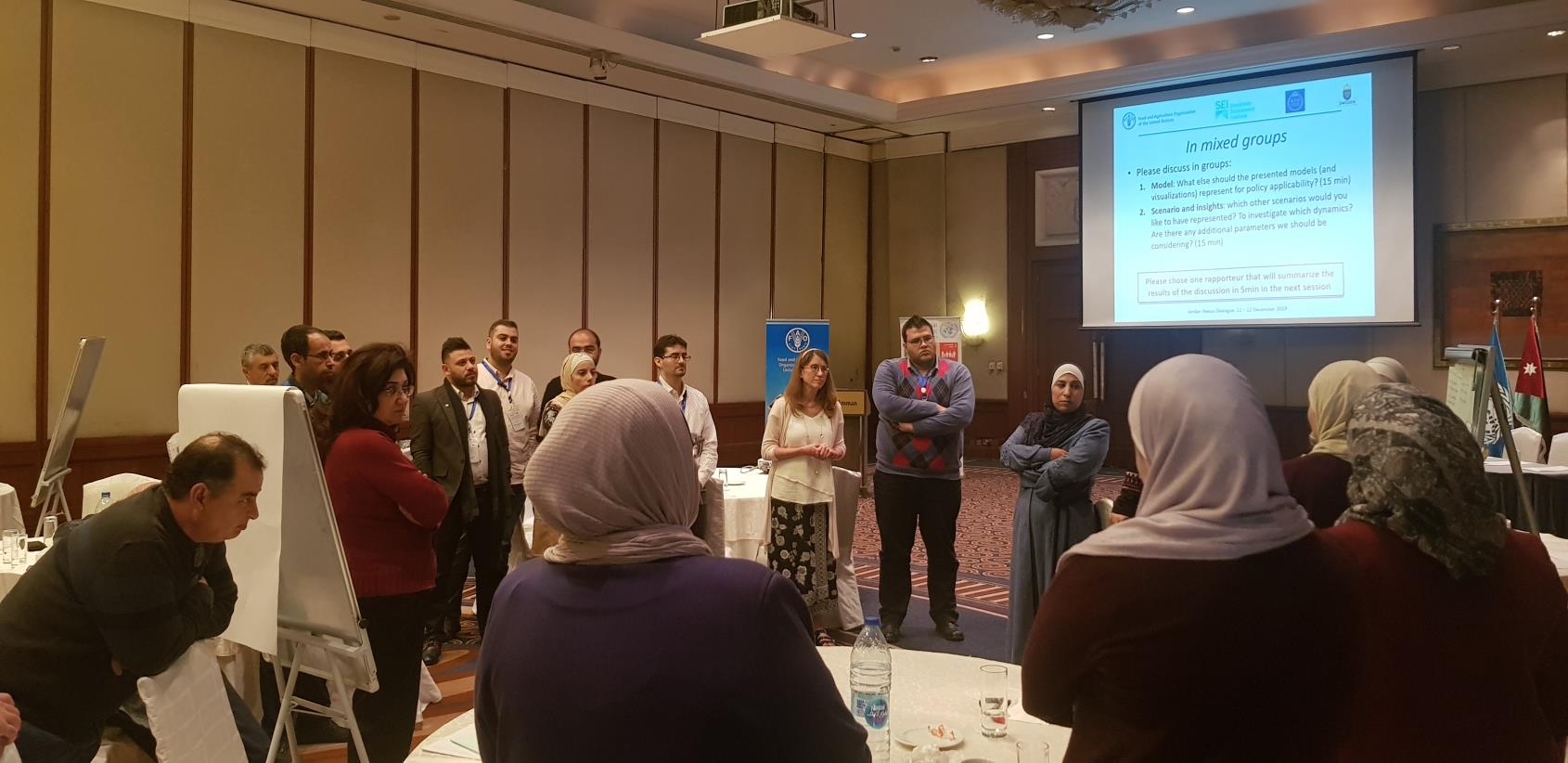Hands-on nexus analysis in Jordan

©FAO - Experts gathered and discussed ideas and new models for addressing water sustainability using a Water-Food-Energy-Climate-Ecosystems Nexus.
15 December 2019, Amman – The Food and Agriculture Organization of the United Nations (FAO) in Jordan convened a two day workshop (Second Nexus Dialogue: Hands-on nexus analysis in Jordan) under the 3rd Output NEXUS- Assessing water sustainability using a Water-Food-Energy-Climate-Ecosystems Nexus analytical framework of the project " Implementing the 2030 Agenda for Water Efficiency/ Productivity & Water Sustainability in Near East and North Africa (NENA) countries '', funded by The Swedish International Development Cooperation Agency - SIDA.
FAO in collaboration with the Ministry of Water and Irrigation in Jordan, Stockholm Environment Institute (SEI) and the Royal Institute of Technology (KTH) conducted a two day workshop (11-12 December), where a group of experts, resource managers, policymakers, and stakeholders gathered to discuss the results and the model developed based on the First 'Nexus Dialogue' (Assessing water sustainability using a Water-Food-Energy-Climate-Ecosystems Nexus analytical framework) held in Amman last March.
The official opening of the dialogue was attended by the Engineer Ali Suboh, Secretary General at the Ministry of Water and Irrigation, where he expressed his concern by saying "Water scarcity is a major burden borne by the government, it has always been and still in the top of the government's future plan within the Swiss funded project of Al Ghadeer Al Abyad area in Mafraq".
Alexis Bonte, FAO Representative in Jordan ad interim said, "Climate change, population growth and its related water requirement will only worsen the water scarcity unless concrete measures are taken, like in Azraq. Amongst these measures, water for agriculture should be a priority with treatment, water harvesting and water efficiency such as hydroponic production".
Mohamed AlHamdi, Senior Land and Water Officer at FAO's Regional office said "The pilot countries of this project are Jordan and Morocco, we would like to expand and cover all NENA Region to achieve the SDGS".
The main goal of this workshop, as part of the nexus process, is to present preliminary nexus model results that illustrate the tradeoffs and potential synergies in developing policies and infrastructure to increase the overall water-energy-food security for Jordan.
The workshop engaged key actor groups – experts, resource managers, policy-makers, and stakeholders, involved in the governance of the resources in question – with the results around integrated solutions for sustainable planning in Jordan in the face of critical uncertainties identified in the first Nexus Dialogue. The stakeholders also provided ideas on how to improve the models, and gave feedback about possible new nexus strategies.
Moreover, the participants were given a preliminary quantitative understanding of tradeoffs and synergies around the water-food-agriculture-energy-Climate Change-environment nexus in Jordan, in addition to hands-on experience exploring the nexus space and the implications of taking sector-specific strategies versus looking across sectors in planning processes to identify improvements in the modeling and data. The participants have also agreed on new nexus strategies to reduce the vulnerability of Jordan across sectors and identified the next steps for the final stages of the project.
